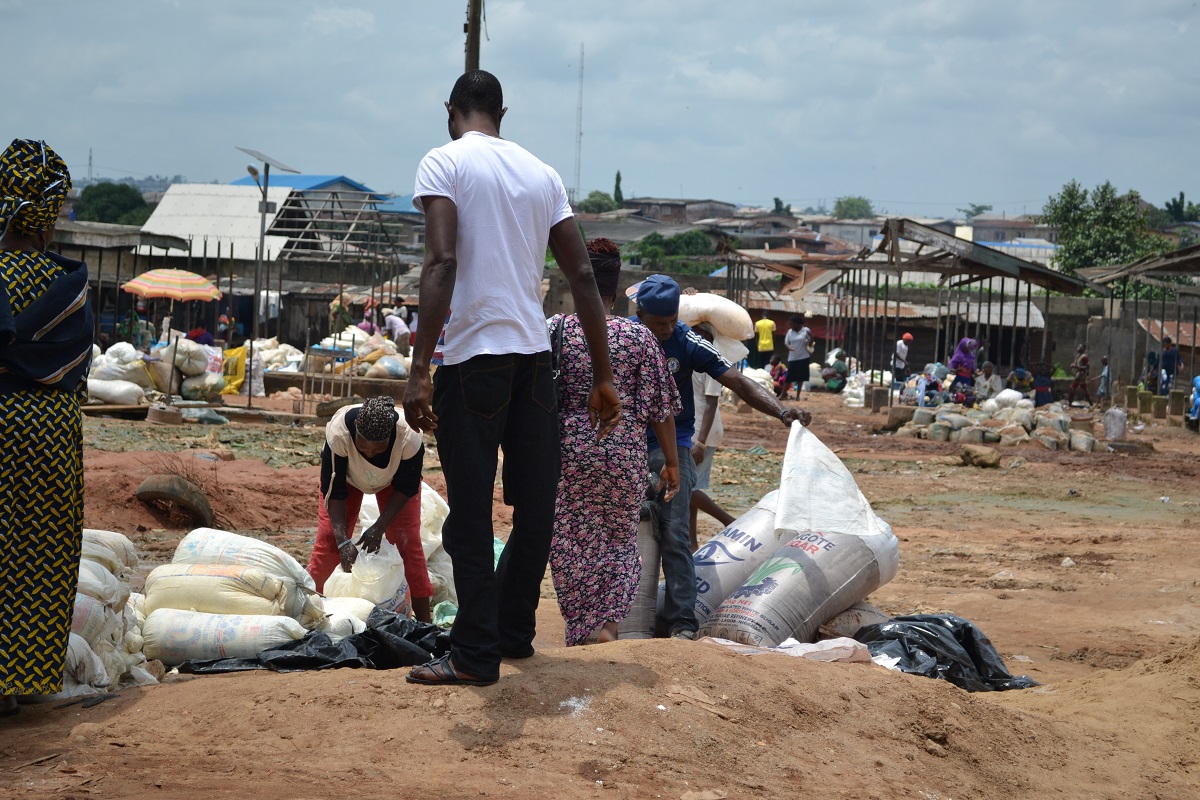
Louise Abayomi, Senior Research Fellow – Postharvest Specialist, NRI |
Nigeria is the most populated African country, with almost half the Nigerian population living in extreme poverty (WB, 2018). Food and nutrition security is therefore of particular concern. Lagos State in the south-west of Nigeria is home to around 21 million people (10% of the national population). Traditional open markets are the norm for food trade in Lagos.
In excess of 90% of food coming into Nigeria is sold in traditional markets. High-risk foods such as perishable meat, vegetables and fruits are mostly sourced from local farms, or in the case of meat, killed in proximity to the selling areas. Durable commodities tend to be sourced from other States. For foods that will not normally undergo a cooking step, as well as foods with multiple handling immediately prior to consumption, there is a lack of knowledge in such food systems on how risk management systems such as HACCP (Hazard Analysis and Critical Control Point) or monitoring programmes can be optimised to address virus contamination in foods.
Unlike in Europe, where experts say the risk of contracting COVID-19 through the food chain is very low, in developing countries such as Nigeria, person-to-person contact and environmental conditions are aiding the spread of disease, with risks linked to food handlers, non-cooked food and food contact. In response, the largest market in Lagos has just been closed until further notice, particularly as social distancing in such environments is very complicated. However, potentially, secondary transmissions of coronaviruses by foodborne contamination are also possible (SARS is a case in point). Importantly, the Codex Committee on Food Hygiene concludes that viruses are an important food safety concern. Foodborne contamination may be the result of infected food handlers who unknowingly transmit their infections to food. Emerging viruses should therefore be monitored, in order to assess the potential for foodborne transmission.
HACCP is a tool for assessing risk and managing food safety hazards. It provides a structured and scientific approach in making judgements and deciding on action, based on both quantitative and qualitative data. Where data is scarce, such as in the case of COVID-19, assumptions, and thus, conceptual models can also be developed. With regard to emerging viruses (HPAI-H5N1 virus, SARS-CoV and Nipah virus), and now COVID-19, major data gaps still exist in terms of a potential linkage to foodborne transmission. However, codex experts have previously suggested that “data gaps do not necessarily preclude the use of risk assessment approaches in addressing foodborne viral problems” (FAO/WHO, 2008); and so, concerning the food systems in Lagos, Nigeria, we consider that there is already sufficient information available to conduct a viral risk assessment on the food marketing system. Lagos is food insecure. Further, as over 40% of the food sold in Nigeria passes through Lagos – either it is imported through Lagos port, or comes via road from other states – before reaching consumers across the country, the management of virus risks across the preharvest–postharvest continuum should be a priority in order to effectively stem COVID-19 transmission in the food system. We emphasise the opportunity for collaboration between Federal and State ministries concerned with environment, public health, and food safety in conducting a HACCP-based risk assessment, with a review of current practices and guidelines.
Find out more:

